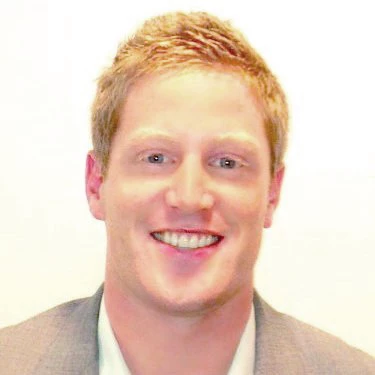 Summer is almost over and the fall semester is about to begin for young economics students. But this semester could be the start of something much larger at University College London (UCL) and the University of Massachusetts in Boston.
Summer is almost over and the fall semester is about to begin for young economics students. But this semester could be the start of something much larger at University College London (UCL) and the University of Massachusetts in Boston.
These two schools are among the first to pilot a fundamentally new approach to the way economics is taught in higher education. Others including the University of Sydney, Sciences Po (Paris), and the University of Chile will follow in early 2015.
This new approach is based on the CORE project of the Institute for New Economic Thinking (INET) at the Oxford Martin School, part of a global call for an overhaul of the economics curriculum commonly taught to undergraduates. True to its name, the CORE project has developed a new, interactive core curriculum—all delivered through an online virtual learning environment, and completely open to the public.
Led by UCL Professor Wendy Carlin, the CORE project draws on the expertise of more than 25 academics from top universities around the world and has been put together with the help of web designers and developers in Bangalore, with consistent input from panels of students, teachers, employers, and experts. Our own World Bank trade economist Jose Daniel Reyes was one such contributor.
The result is a total re-think of the economics syllabus and teaching methods.
An open letter posted online earlier this year by the International Student Initiative for Pluralism in Economics—a collaboration of 65 student associations from 30 countries around the world—and widely disseminated around the globe helped propel the issue into international headlines.
Students were upset that the theories they were being taught in classrooms did not accurately reflect the economic challenges of the real world—especially in light of the 2008 financial crisis. An excerpt of the letter reads:
“We are dissatisfied with the dramatic narrowing of the curriculum that has taken place over the last couple of decades. This lack of intellectual diversity does not only restrain education and research. It limits our ability to contend with the multidimensional challenges of the 21st century - from financial stability, to food security and climate change. The real world should be brought back into the classroom, as well as debate and a pluralism of theories and methods. Such change will help renew the discipline and ultimately create a space in which solutions to society’s problems can be generated.”
The CORE project and its new pilot curriculum is a first step towards meeting this call. The Trade Post caught up with Professor Carlin to discuss the project and what role the World Bank Group can help play in reshaping approaches to economic problems.
Trade Post: What was it that led you personally to work on this project? Was there a specific moment or experience that motivated you?
Prof. Carlin: The initial push for me was the financial crisis and the need to integrate the financial system into the way macroeconomics is taught. But I quickly found a group of people from all over of the world who were coming at the problem from different angles.
For example, Oscar Landerretche of the University of Chile was put on the spot by the student movement – students were protesting against inequality in the education system and turned up on campus to demand a more relevant economics curriculum. Begum Ozkaynak of Bogazici University in Turkey was leading a review of the curriculum prompted by student dissatisfaction with the arid courses they were taking. Arjun Jayadev of UMass Boston was facing the challenge of designing a curriculum for the first cohort of students arriving in 2015 at the new Azim Premji University in Bangalore. Kevin O’Rourke of Oxford brought to the group the conviction that economic history is crucial to the core courses in economics. And Sam Bowles of the Santa Fe Institute pulled the different strands together arguing that we should and could teach economics as if the last three decades had happened.
In practice this means teaching an empirically grounded course that begins from the big questions students come to our classes with and where from the beginning students learn, for example, that markets for labour and credit are different from the market for shirts.
Trade Post: Part of what you are calling for in CORE is to bring more examples of empirical research and lessons learned in the field into classrooms sooner. What was it about the World Bank’s quinoa research that made you think it was worthy of inclusion?
Prof. Carlin: Margaret Stevens of Oxford was looking for cases to illustrate how and why prices change. As she described it to me as an interesting story with dramatic changes over time, winners and losers, and a strong international dimension. She also found the economic data were presented clearly and unambiguously, so they could be used with confidence. We would be very happy to be alerted to more good stories from Bank empirical work and experience in the field.
Trade Post: How does the CORE curriculum approach the issues of extreme poverty and shared prosperity in development economics, the pillars of our work here at the World Bank Group?
Prof. Carlin: One aim of the project is to bring the central questions of development economics into the core curriculum. We begin the “Introduction to Economics” course with long run historical data and the question of why the capitalist revolution occurred in England in the 18th century and not in China or India. We ask why and when other countries moved on to a path of sustained growth in GDP per capita and why many remain poor.
Inequality among and within countries is a theme from the beginning of the course. In addition to history, dynamics and inequality, we emphasize institutions and the difference they make to the efficiency and fairness of economic outcomes.
Trade Post: How can global institutions like the World Bank better contribute to the study of economics?
Prof. Carlin: The Bank has been a leading force in convincing economists of the priority of inclusive growth and the necessity in many countries of institutional change to assure this.
Resistance to the necessary policy changes are often based on outdated economics. As part of its attempts to ensure shared prosperity, the Bank might want to invest more in ensuring that the next generation of opinion and policy makers has an understanding of economics more consistent with the Bank’s objectives.


Join the Conversation